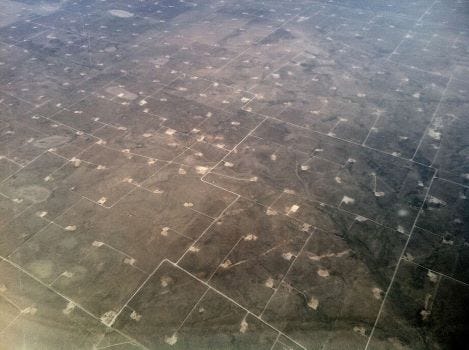No corporation better represented 20th century industrialism than ExxonMobil. Birthed from the breakup of the Standard Oil Trust, Exxon had previously been Standard Oil of New Jersey, the seat of John D. Rockefeller’s oil empire. Exxon emerged from the breakup as the world's largest oil company, expanding across the globe in ways both good and evil, a petro-icon fueling 20th century industrialism.
Today, Exxon flirts at the edge of public conscious, still regularly popping up in the financial press, after all selling 2.25 million barrels of oil a day (mbd) remains a highly lucrative business, even if its only 2% of the total global market. Not nearly the planetary power it was a century ago, recent headlines reveal the company is an increasingly fading force. Exxon might best be looked at primarily as an old refining and distribution company. Its reserves, beware these are the most slippery of oil numbers, are only 15 billion barrels of oil equivalent (boe). If total global oil reserves are 1600 billion, again take with a big grain of salt, Exxon’s share is less than 1%. As the Oil and Gas Journal writes,
“15 billion boe (barrel of oil equivalents) of reserves declared in 2020 means its volumes would run out in just over 11 years, compared to the previous expectation of more than 16 years. The reserves to production ratio for Shell, meanwhile, fell dramatically to 7.4 years in 2020 – the lowest level among all majors.”
For decades now, reserves are trending down for all the old oil majors and a good many national companies, thus it’s always news/entertainment to watch what the boys at Exxon are doing attempting to gain more reserves.
Last week, Exxon announced they were pulling out of Brazil. A decade or so ago, the Brazilian coast was one of several places the industry proclaimed would deliver a new oil cornucopia, turns out not so much. The WSJ writes, “ExxonMobil Corp. has abandoned a multibillion-dollar wager on finding oil in the deep waters off Brazil after a series of disappointing wells” — onto Guyana.
The Sauds have been whinging for a couple years the industry isn't investing enough capital for the future, most recently blaming the greens – who or whatever that is. If Exxon still show some of greatest corporate profits selling only 2 mbd, remember the Sauds sell three and four times that. They announced a couple years ago they were spending a hundred billion dollars over a decade to bring online just a million barrels more, only time will tell if they can actually do that. Those are some mighty old, heavily pumped fields in the Arabian desert.
The nut here is spending the greatest amount of capital spent ain’t going to bring much new oil out of the ground. While, whatever capital spent becomes more and more dear to recoup, much more to make a profit, simultaneously becoming an increasing problem for the present corporate global economy which doesn’t run well on a $100 barrel, less well every dollar above that.
Secondly, coming on the heels of the Brazil disappointment, Exxon may be looking to gobble-up one of the bigger shale players, Pioneer Natural Resources. The WSJ writes with little irony, the deal “could kick off a bonanza of deal-making in the oil patch as drillers look to put large war chests of cash to work.” That’d be putting cash to work from a financial perspective not an energy one. At $52 billion for 600 thousand barrels, it'd be a similar price to the Sauds' hundred billion for a million barrels.
You'd think Exxon's been paying attention to the news out of the shale patch the last couple years that the dream is over. Last year, one of the major shale players said the industry would need to invest in risky exploratory drilling, putting shale in the same position as the old majors.
A decade or so ago, Chris Whalen asked me, the first though certainly not the last time I heard it, about shale debt peddlers saying shale would make the US the new Saudi Arabia. “Incredulous,” I replied! Nonetheless, for a few months in 2019 and 2020 they made it happen. Say what you will about the Shale Revolution, it was the last great act of the Industrial Age – labor, steel, energy, and engineering ingenuity combined to create a vast sweeping assembly line across the Western landscape, and as always with industrialism, with total disregard for any greater environmental impact. Unlike most industrial activity, take the one hundred year history of Exxon as an example, shale was never really profitable, making clear for anyone paying attention the era of cheap and plentiful oil is over.





